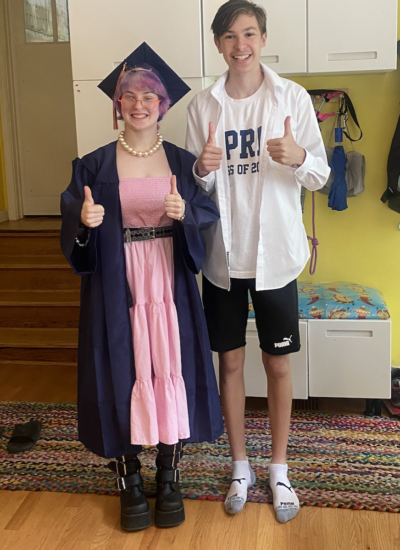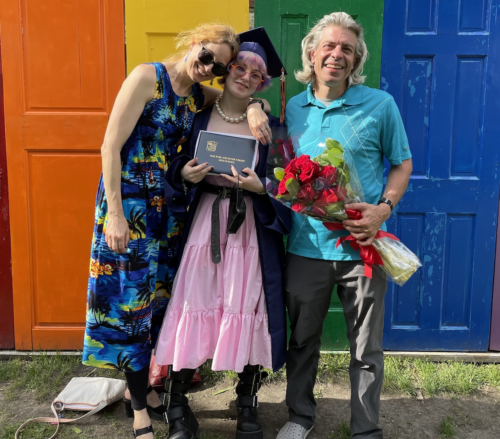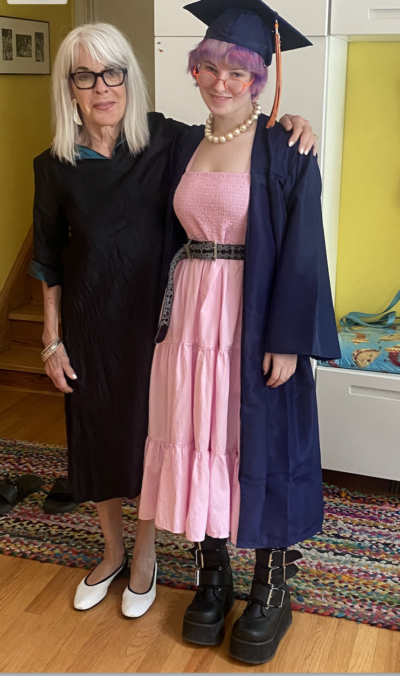Ram Dass: “If you think you’re enlightened, go spend a week with your family.”
This quote came back to haunt me after spending Memorial Day weekend with my family. As my plane descended into Chicago’s O’Hare airport, I was filled with anticipation for my granddaughter’s high school graduation and for our first family reunion after a two-year Covid-forced separation. We are a lively family, who likes to laugh, but we are also full of opinionated personalities, where political discussions rapidly turn into a screaming match. But I was only imaging warm cozy restaurant meals and witty exchanges.

What enfolded was like a Broadway play in three acts.
Act One
Family greetings are exchanged as everyone strolls to a neighborhood restaurant. The evening is balmy. City planters of summer flowers grace the sidewalk. We are seated at a round table next to a smooth jazz trio. Throughout dinner, playful ribbing of one another occurs, but no one takes offense. Leaving the restaurant, goodbye hugs are exchanged. The curtain falls on a happy family.
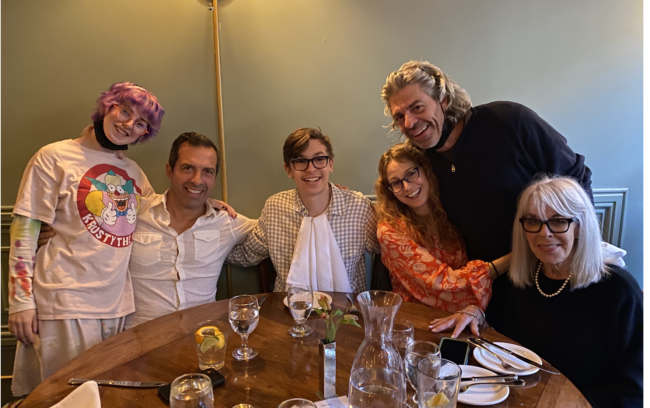
Happy Family, Act 1
Act Two
The family gathers for the graduation ceremony.
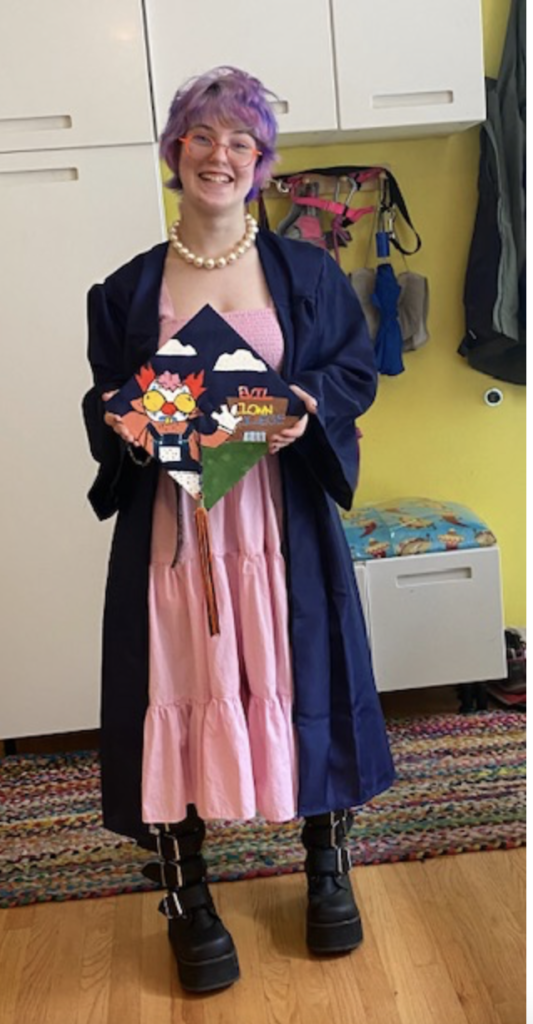
The happy graduate
Son #1 and his wife have been sweltering in the hot sun, saving bleacher seats for Son #2, Nana, and her grandson. The seat savers express irritation at the family members who arrive late, followed by derogatory whispering and disapproving glances all around.

Tension starts to build during the graduation ceremony
A post-graduation dinner is held at a Japanese restaurant. Son #2 comments in a stage whisper that the food is lousy. Son #1 accuses his brother of ruining his niece’s celebratory dinner. The teenagers are obnoxious, flinging Ramen noodles at one another. Nana grows depressed over the dinner mayhem. Everyone says “Goodnight,” relieved at the prospect of retreating into their own space.
Act Three
The family meets for brunch, after which Son #2 rushes off to catch his plane to LA. The remaining family members: Son #1, Daughter-in-Law, Son, Daughter, and Nana, drive to the Looking Glass Theater to see a play. On the way to the theater the daughter is crabby. Her brother mocks her. The fed-up parents scream at their offspring.
Upon arrival at the theater Nana spends ten minutes scrolling through her phone for the theater’s required proof of vaccine card. Her son chastises her, claiming she’s gotten more disorganized, a sign of Alzheimer’s. Provoked, Nana snaps at her son, accusing him of overreacting.
That night at dinner, the teenage daughter has a meltdown, accusing her parents of not understanding her. She storms off from the restaurant. Son #1 says he has an errand to run and exits. Left at the table with Nana are Daughter-in-Law and Grandson. They open-up, complaining about Son #1’s hot-headed behavior, insisting it controls the family.

The outdoor restaurant where the drama spiked
How could I have behaved differently, to avoid getting sucked into my family drama?
For starters, I should have set realistic expectations. It was a given my sons would clash, that the teens would be provocative, and that my daughter-in-law would exhibit frustration. But I kept telling myself, “This time it will be different.”
I should have refrained from giving advice, like telling Son #2 to stop provoking his brother. I should have taken a breather, briefly stepping outside, when the table arguments got to me.

Pondering different responses to my family drama
If our family is our spiritual teacher, as one friend suggested, I can enter future gatherings by asking myself, “What do I need to learn here?”
If I lovingly detach myself to gain objectivity, I can appreciate that my family can teach me acceptance. I can recognize that my sons’ fiery temperaments, come from hurt places, and view them with compassion rather than irritation.
If I work on cultivating compassion and acceptance for family members, our family drama might not have a perfect ending, but I’ll be calmer and less frazzled. As the family elder, I feel a responsibility to model soulful relationships. Rather than being annoyed with my family, I can express gratitude for the lessons they offer. If I make even a little progress, I might find Ram winking at me from his celestial perch.
